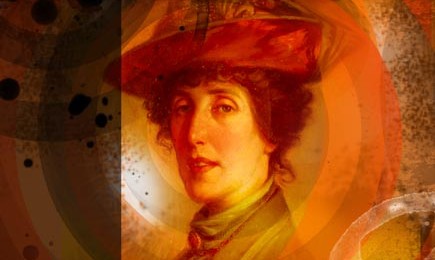
Revolutionary Women
Johanna Lahr (1867-1904)
“The journeymen bakers of London are at last making themselves heard, being urged on by the lessons taught by the skilled and unskilled Labour Strike of the dockers, and the sweated tailors in the East End, which showed what can be done if workers are united and organised…do you toil and suffer such lives under these wretched conditions for yourselves and your families, or your masters?
Where are the fruits of your labour?…what hopes have you when you are past work?…Have no trust in your Houses of Parliament. The sooner they are turned into a washhouse or bakehouse the better for the workers. I am with you heart and spirit, and will never tire of helping you to a brighter future, where freedom, love and harmony shall reign; where the dawn of the morning shall be greeted with gladness, and work be only a pleasure; and where the burden of life and sorrow-stricken faces shall disappear like a snow-white mist in the morning.”
– Johanna Lahr ‘The Poorest of the Wage-Slaves’
Johanna Lahr was one of many women who were active in the anti-parliamentarian and anarchist movement, like Agnes Henry, Lilian Evelyn, Edith Lupton and others who deserve to be rescued from obscurity.
She was born Anna Klebow in Germany in 1867, the daughter of Karl Klebow, a cabinet maker. She appears to have emigrated to England between 1885 and 1887. By the latter year she was active in the Socialist League. She appears to have formed a relationship with the journeyman baker Philip Lahr, born in Ecklesheim, in the State of Hesse in Germany in either 1854 or 1857, according to different sources. Incidentally, Philip Lahr was not a relation of Charlie Lahr, who was also a German anarchist who had come to Britain. It appears that Philip came to London to avoid conscription around 1874/5. He was an avowed anarchist, and probably a member of the Socialist League, and knew Edward Carpenter and Kropotkin well, and had even seen Karl Marx at meetings, but it is unclear whether Johanna was herself already an anarchist before she met him. She began to use the surname of Lahr, although the pair were not formally married until the 1st of June, 1895, in Croydon.
She spoke at many meetings, and she is listed as speaking at 13 meetings in March 1889 alone! That year she spoke to two meetings of the Leicester branch of the Socialist League, at Russell Square and Humberstone Gate, alongside the anarchists George Cores and Tom Pearson. On Sunday the 29th of June, 1890, she spoke for the East London Anarchist-Communist Group at Victoria Park alongside Edith Lupton, Henry Davis, R.W. Burnie and Brooks at two meetings. She is recorded at speaking in the same location on Sunday the 13th of July that same year, with R.W. Burnie and Davis. She spoke at a commemoration meeting organised by the League for the Chicago Martyrs in November 1890 at Milton Hall, Hawley Crescent, Kentish Town. She was described as a “stately woman with a strong foreign accent”. She was certainly associated with the anarchist wing of the League along with Kitz, Mowbray, W.B. Parker and Burnie. She was one of those who attended the Anarchist Conference organised at the Autonomie Club at 6 Windmill Street in 1890.
In April of 1889 she wrote to Friedrich Engels and asked him for an interview, asking his advice on which works on socialism to read. This correspondence continued for a few weeks, although there is no evidence that she actually met him.
In the same month of the same year she began a campaign to set up a bakers union. Her companion was one of over 2000 German bakers based in Britain, mostly in London, between 1880-1910. This organisation probably had contact with the International Bakers Union, but was only one of several in London. She spoke at a meeting of this group, the Amalgamated Union of Bakers, in October of that year, urging them to be “men not slaves” and calling on them to boycott scabs. In autumn 1890 she was involved in supporting the bakers strike in London. She wrote a two-page leaflet for it in October, titled ‘The Poorest of the Wage-Slaves’. The strike was successfully completed in November. In the leaflet which bore her name she urged that it was not enough to be content with a strike but to continue organising among the bakers and not to rely on Parliament which should be converted into a bakery!
Johanna had three children, the first Philip, born in 1899, the second Victor Hugo, born in 1902 and the third, Bruno Edgar, born the following year. Sheila Lahr, writing about her father Charlie, mentions the unrelated Johanna and that Charlie told her: “Explaining the difference in appearance between the siblings, my father blithely tells me ‘their mother Johanna was an anarchist and she had a number of lovers and children by all of them. None of them are really Lahrs.’”. Whether this is true is in doubt, as Philip Lahr had three further sons by a second wife Wilhemina Schumacher.
She died in September 1904 of what was listed as a “breast infection” but was possibly cancer.

Social Media